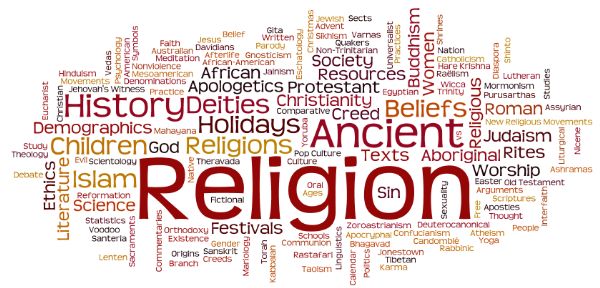Why Study Religion?
So, why study religion?
I am in a graduate program in Mindfulness Studies. While it is understood as a secular endeavor, there is no way to untangle the practice of mindfulness from its Buddhist roots and wisdom. I wasn’t aware of it, but I was continuing my undergraduate studies in religion with my choice of post-graduate study. But this time instead of the ancient religions of Sumer, Egypt, the Levant, and Europe, I am studying the religions of the ancient Far East.
Religion has shaped my life, both personally and academically. And it has also shaped everyone else’s, whether they participate or not. Religion is not only part of human culture, it IS human culture. It is the very heart of Humanities – the important questions of philosophy are given voice through religion, our language is shaped according to our etiological stories of creation and our environment, and our history is motivated by our religious mythology. Those who study human artifacts and past societies – anthropologists and archaeologists – are greatly benefited by knowing about the trace of religious beliefs throughout the ages to understand the actions and reactions of ancient peoples. And, of course, those who study humans – psychologists and sociologists, including educators – will affirm that religion drives the very laws and precepts that maintain order and safety, but also control individual behaviors such as food practices, clothing choices, parenting, and morality.
Religion is considered the moral compass of any land, even if no one can really determine whose morality is best to enforce. It is personal, interpersonal and alienating – all at the same time. Religion has this amazing ability to reveal human strengths, weaknesses, fears, and motivations. It is my opinion that to better understand any subject that involves humans, one must have some knowledge and understanding of human religion. And, if one chooses to study religion outside of a liberal academic context (as in theology or apologetics), they are only receiving one facet of this multi-dimensional, all-encompassing subject. No student receiving a degree from university should be without at least one, if not more, courses in religious study on their transcript. The study of philosophy, history, language, archaeology, psychology, or sociology is incomplete without some understanding of the human endeavor of religion.
As a side note, in our household we are reading the latest from Reza Aslan, God – A Human History (2017). I cannot recommend it highly enough.

Comments